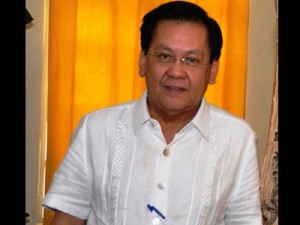Regional cooperation to stop smuggling of fuel, says Osmeña
MANILA, Philippines—Sen. Serge Osmeña said on Thursday the Philippines should seek regional cooperation to stop the entry of smuggled petroleum products into the country, reportedly mainly from Malaysia and Indonesia.
“We must establish closer coordination with Malaysian and Indonesian authorities,” Osmeña, chair of the Senate energy committee, told the Inquirer in a phone interview.
“The Department of Energy and Bureau of Customs (BOC) could set up real-time reporting on the movement of oil tankers in cooperation with producers from Indonesia and Malaysia. Better still, we can set up an Asean (Association of Southeast Asian Nations) monitoring group,” he said.
A senior official of the Department of Finance (DOF), who requested anonymity for lack of clearance to make an official statement, said the agency was zeroing in on a Hong Kong-based trading firm, which has so far emerged as the biggest source of smuggled oil in the Philippines.
Transshipment points
The official said that smuggled products were coming from Singapore and Taiwan as transshipment points with countries in the Malacca Strait—Malaysia and Indonesia, the biggest oil producers in Southeast Asia—eyed as the original sources.
“The principle is that all those oil movements are tracked by big traders so the information is available and we should use it. The best info should be in or from Singapore,” Osmeña said.
Both Malaysia and Indonesia offer substantial fuel subsidies that have been the main profit motivator for oil smuggling to neighboring countries like the Philippines, especially in the face of soaring crude oil prices.
Grossly exaggerated
But Senators Francis Escudero and Ralph Recto would not confirm whether the smuggled oil came from Malaysia and Indonesia.
“We should plug all the loopholes whatever source this smuggled oil is coming from,” said Escudero.
Recto said: “All oil imports must pay appropriate taxes regardless of origin or point of entry. Those who export are eligible for VAT (value added tax) refund. This alone will ensure more government revenues and promote investments in the oil industry.”
Top officials of Petron Corp. and Pilipinas Shell Petroleum Corp. claimed that more than a third of legitimate fuel sales in the country were smuggled. Oil is smuggled into the Philippines through the high seas, economic zones and regular ports.
Fernando L. Martinez, chair of the Independent Philippine Petroleum Companies Association, declined to comment on reports that Malaysia and Indonesia were the sources of smuggled oil into the country.
Martinez said the claims of Petron’s Ramon Ang and Shell’s Edgar Chua that the government was losing P30 billion in forgone taxes from oil smuggling were “grossly exaggerated.”
“This is equivalent to P200-billion sales or equal to Petron’s annual sales. How can smugglers manage to distribute it when it takes Petron 2,000 service stations to dispose of its products? The entire sales of new players with 1,000 stations is P50 billion so who sold the P150 billion if it’s true?” asked Martinez.
Not rampant
Based on official data, the Philippines consumed a total of 110 million barrels of oil in 2012, of which 50 percent were imported as finished products while the rest were refined in the country by Petron and Pilipinas Shell. An estimated 36 million barrels more were believed to have been smuggled on top of these legitimate sales.
Martinez insisted that “smuggling may be happening but not at that level.”
“It must be stopped and the independent oil players are reiterating their full support for the BOC and DOF to implement tested measures to eliminate it,” said Martinez.
He also shot down proposals to close economic zones, suggesting that putting quantitative invisible markers used in other countries would be enough to combat tax evasion and smuggling.
“Even oil majors sell at rock bottom prices. So it doesn’t follow that cheaper automatically means smuggled. Economic zones locators are entitled to duty free as defined by law so they can be competitive in exports. But control must be stricter by effective fuel markings,” said Martinez.
Chua has identified Subic Bay Freeport and Phividec Industrial Estate in Misamis Oriental as the gateways of smuggled oil in the country.
